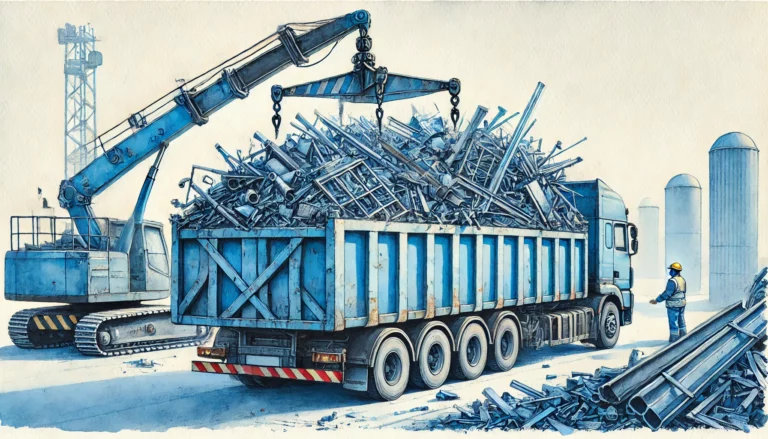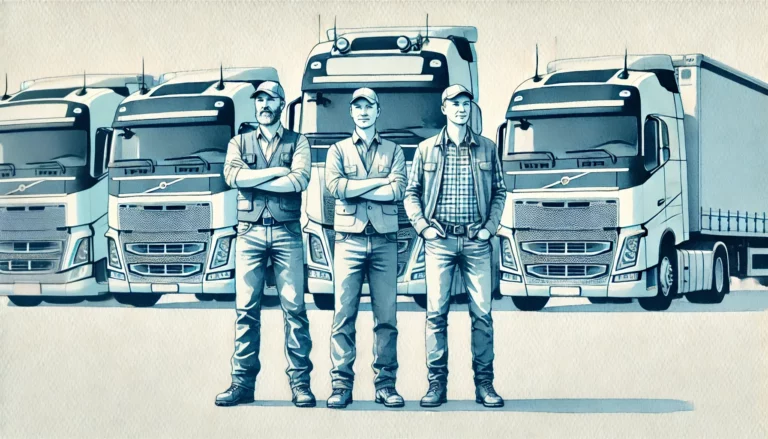Waste carrier — is this profession worth the time and effort?
In recent years, the waste management industry has seen growing demand for professional and compliant transport services. One role that stands out in this context is the waste carrier. These are the drivers or companies authorized to move waste legally within or across national borders. Although it may seem like just another transport job, becoming a waste carrier requires navigating regulations and meeting formal requirements. This raises a valid question: is it really worth the time and effort to obtain the necessary permits and enter this niche sector?
We are looking for carriers with waste permits in Europe for cooperation.
Call us: +48 519 516 869 or write us an E-mail dispo@wastetransportsolutions.eu
What you need to become a licensed waste carrier
Becoming a waste carrier involves meeting specific legal standards. In most European countries, this means obtaining official registration or authorization to transport waste. For example, in Poland, companies must register with the BDO (Waste Database) and, in many cases, submit shipment notifications via the SENT system. These frameworks help track the flow of waste and ensure environmental safety.
Each country has its own regulatory structure. However, the core requirement is always the same: a valid permit is necessary to operate legally. While costs and processing times may vary depending on the country, every aspiring waste carrier must invest both time and resources in compliance.
Market demand for professional waste carrier
The market for waste transport services is growing steadily. Businesses, municipalities, and recycling plants need reliable partners to move various types of waste. Whether it’s electronic waste, construction debris, or industrial by-products, someone has to ensure safe and legal transport. This demand is further fueled by strict environmental laws. As countries tighten waste regulations, more companies outsource their waste transport needs. That creates opportunities for professional waste carriers ready to deliver high-standard service and meet documentation requirements.
Adding to this, the ongoing shortage of professional truck drivers across Europe creates even more opportunity for licensed waste carriers. According to the International Road Transport Union (IRU), driver shortages remain a serious challenge for the freight sector, with many operators struggling to meet demand. This talent gap of 500.000 vacancies opens the door for new entrants who are willing to specialize in regulated niches such as waste transport.
This demand is further fueled by strict environmental laws. As countries tighten waste regulations, more companies outsource their waste transport needs. That creates opportunities for professional waste carriers ready to deliver high-standard service and meet documentation requirements.
Potential income and profit margins
The income potential in waste transport varies widely. Factors such as waste type, volume, and transport distance significantly impact pricing. So do logistical elements like whether the delivery must be made outside regular hours or with high urgency. In fact, many recycling facilities operate 24/7 and depend on a continuous flow of incoming waste.
This creates a situation where time-sensitive deliveries are not just common, but expected. Waste carriers who can guarantee quick response times and flexibility often find themselves in high demand. Efficient planning and reliable execution can significantly improve profit margins.
Challenges and risks
While the rewards can be attractive, the profession isn’t without its challenges. Waste transport is heavily regulated. A small documentation error or an unintentional compliance issue can result in serious consequences, including fines or operational delays.
There is also a learning curve. New entrants must become familiar with a range of codes, documentation protocols, and safety standards. Furthermore, competition from well-established transport firms means that small players must find ways to offer added value—often through specialization or building long-term client relationships.
Why it can be worth It
Despite the hurdles, many drivers and small logistics firms find waste transport to be a rewarding and stable niche. The constant need for legal and safe waste handling ensures a steady stream of clients. For those who can operate efficiently and responsibly, it opens the door to long-term contracts and repeat business.
Moreover, this sector aligns well with broader environmental and circular economy goals. Waste carriers contribute directly to cleaner, more sustainable industries. That gives the profession both economic and ethical appeal, especially for those seeking meaningful work.
So, is it worth it?
Is becoming a waste carrier worth the effort? The answer depends on your goals and ability to meet regulatory standards. If you’re ready to invest time in understanding the legal landscape and can deliver reliable transport services, the profession offers real opportunities.
With demand on the rise and environmental compliance becoming more important than ever, certified waste carriers are likely to remain in demand. For many, that makes the initial effort not just worthwhile, but potentially transformative for their career or business.







